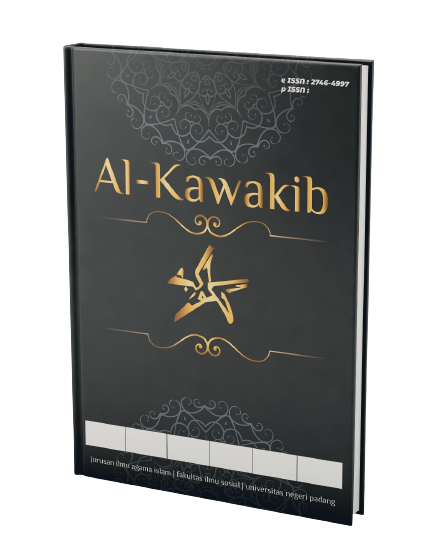Designing a Digital Islamic Education Textbook Based on Science Integration to Foster Students’ Creative Thinking
Abstract
This study aims to develop a digital textbook for Islamic Religious Education (PAI) based on integrative science that is valid, practical, and effective in enhancing the creative thinking skills of students at SMPIT Al-Marjan Nusa Indah, Bengkulu City. The research employed a Research and Development (R&D) approach using the ADDIE development model. The data sources in this study consisted of both qualitative and quantitative data. Qualitative data were obtained from expert reviews and suggestions provided by media experts, content experts, PAI teachers, and students. Meanwhile, quantitative data were derived from expert validation assessments and student response questionnaires. The results of this research and development indicate the following: (1) The development of the digital Islamic Religious Education textbook was deemed valid by the validators, as evidenced by the validation scores from the content expert (91.4%), media expert (94.2%), language expert (90%), and subject teacher expert (93%), all of which fall under the "highly valid" category. (2) The practicality test of the integrative science-based digital textbook, based on student responses, yielded an average score of 89%, indicating that the textbook is highly practical. (3) The effectiveness test was conducted through pretest and posttest comparisons between control and experimental groups. The data were analyzed using normality, homogeneity, and independent t-tests, the results of which confirmed the high effectiveness of the integrative science-based digital textbook. Furthermore, the improvement in students’ creative thinking skills was supported by student response questionnaires, which showed a score of 86.43, indicating a significant enhancement in creative thinking skills.
Downloads
Copyright (c) 2025 Rina Nirwana, Riswanto Riswanto, Alimni Alimni

This work is licensed under a Creative Commons Attribution-ShareAlike 4.0 International License.


1.jpg)





.PNG)
.PNG)




3.PNG)
2.PNG)



